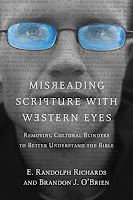When I first heard about Tea with Hezbollah by Ted Dekker and Carl Medearis, I was fascinated by the idea. From the very first line, I was hooked.
The premise of the book is that in 2009, author Ted Dekker and his friend and international expert in Arab-American and Muslim-Christian relations, author Carl Medearis, flew to the Middle East with one purpose: to meet with Islamic leaders, drink tea, and ask them what they think about Jesus' parable of the Great Samaritan, a famous teaching on loving your neighbors.
Can you tell why I was hooked immediately?
The first thing I noticed, and honestly, it is definitely a small point I want to make, is that I didn't realize how funny Ted Dekker is. I've read many of his books, which fall in the genre of "Christian thriller". I've enjoyed them, but many were also 'above me' because of his sheer brilliance. I've enjoyed his books; but I've never known that he is just plain funny. It made this book so enjoyable to journey with him and Carl throughout the Middle East.
That aside, this book is incredible. The depth of detail and insight the authors used in their journeys kept me entranced, as I learned about people and places I've never seen, been, or met before. There was so much for me to take away as a student of people and culture, including basic practices and values of Islam that I didn't previously know.
I also appreciated how the authors published their interviews as they were spoken, not re-written from the ears and perspectives of the author, but literally transcribed to see the meanings and intention of the subjects, who were:
- Abdul Fadeel Al Kusi of the Al-Azhar University in Cairo, Egypt
- the Bin Laden brothers in Saudi Arabia
- Ayatollah Mohammed Hussein Fadlallah in Lebanon
- Bedouin Prince in Lebanon
- Hezbollah Sheik Nabil Qaouk in Lebanon
- Mufti Abdul Fattah Al Bizem of Damascus, Syria
- Mufti Sheik Ekrima Sa'id Sabril of Jerusalem, Israel
- A leader in non-violence in Bethlehem, Israel
- A top leader of Hamas in the West Bank
- A leader of one of the 700 remaining Samaritans in Israel
- and many more, including taxi drivers and random people.
This is why I was so fascinated, because Jesus is known in Islam as being a great prophet - not the greatest prophet (who is Mohammed), but a good teacher. Many of His teachings are in the Quoran. This is why the story of the Good Samaritan is known throughout all of these groups. To read the views, thoughts, and perspectives of these Muslim leaders on a well-known teaching of Christ was fascinating. I'm not going to try to summarize it, because I can't.

















